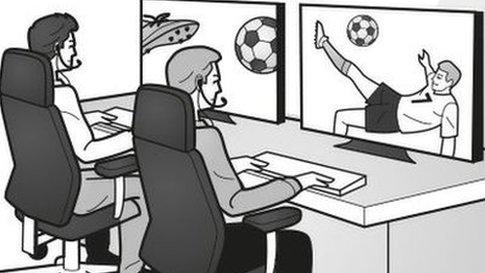Football reforms: Pat Nevin's verdict on which of them would work
- Published
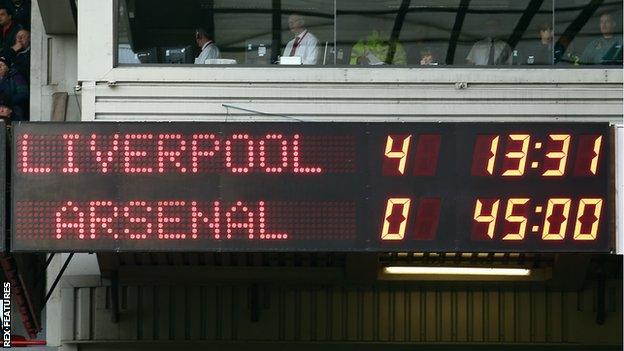
Your time is up: Halves would no longer last for 45 minutes if the proposals get the go-ahead
From 30-minute halves to dribbling straight from a free-kick, proposals have been put forward to change the game of football as we know it.
The International Football Association Board (Ifab) has several ideas to alter the laws of the game - supposedly to make it more attractive.
They form part of a strategy document called 'Play Fair!' - but would they work, and what would be the consequences if they were implemented?
BBC football analyst Pat Nevin says he welcomes the discussion - and thinks it is long overdue.
"I honestly think we have had 20 or 30 years of Luddites being in charge of the game," the former Chelsea, Everton and Scotland winger told BBC Sport.
"But we are now hopefully entering an era where people are willing to see if the game needs adapting, and I have to say I applaud their efforts at the moment.
"For example they have finally started using video replay technology, which is something people were calling for when I was playing 25-30 years ago.
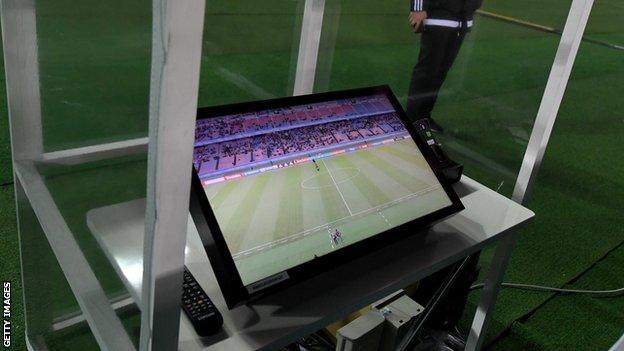
Video replays were used at December's Club World Cup - and are currently being used at the Confederations Cup
"The game moves on and people find ways around the rules that are in place - I did it myself when I played.
"So, I am very positive about any attempts to make the game better and my attitude generally with most of these proposals is let's give them a go to see how they work out."
You can read the full Ifab strategy document here., external
Nevin has looked at some of the more radical suggestions in detail - this is his verdict.
An hour of play - stats show Ifab have got it right
Ifab proposal: Two periods of 30 minutes with the clock stopped whenever the ball goes out of play.
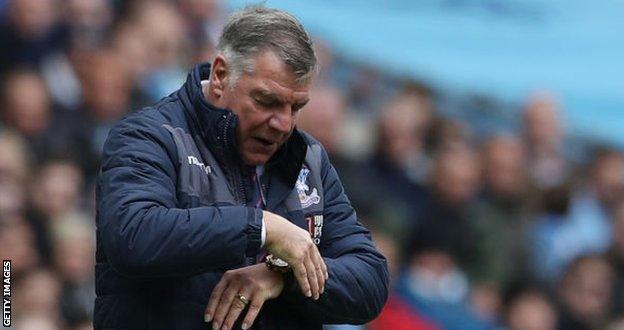
Former Crystal Palace manager Sam Allardyce checks his watch - his side's Premier League games in 2016-17 saw the ball spend the least time in play
Stats from Opta show that, last season, the Premier League team whose games saw the most actual game time were Arsenal, with an average of 58.10 minutes. Crystal Palace had the least, with 52.33 minutes.
Nevin: "I agree with the thinking behind scrapping 45-minute halves because the misuse of that time is a big part of the game now.
"When you get towards the back end of matches, and people start making lots of substitutions for example, then you never get enough time added back on the end.
"This method would mean there is no point in wasting time, because the clock is stopped anyway. Players would not bother doing it anymore.
"When they suggest an hour of playing time, they have obviously got it right. People might initially think 'only an hour?' but in actual fact it is exactly the amount of time that I would expect the ball to be in play anyway."
The pros and cons of changing game-time
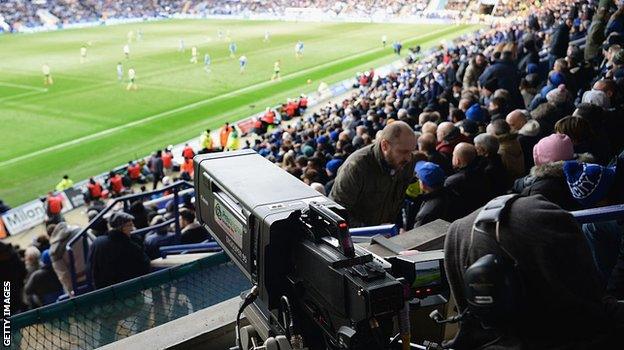
Live, through a lens - would broadcasters be so keen on football if they did not know how long games would last?
Nevin: "The change to playing time would not make any difference to players - the groups of people who this is most important to are fans, and the TV companies.
"Broadcasters are the ones who will be most concerned, if they find they can no longer be certain when games are going to finish because it takes a varying amount of time to play the full 60 minutes.
"From a fans' perspective, stopping time-wasting is very important and this would be a way of ensuring people are getting their money's worth when they watch games.
"But you also have to consider the effect this change would have on supporters who need to travel back from games. You cannot mess them around - you need to give them a rough idea of when a game is going to finish, so they can get back home."
'This would completely change the dynamic of the game'
Ifab proposal: Players can dribble straight from a free-kick, as well as goal-kicks and corners, to "encourage attacking play as the player who is fouled can stop the ball and then immediately continue their dribble/attacking move".
Nevin: "I have no idea if this would work. It does not strike me as one that I would be mad for, but this is a root and branch look at the laws of the game, so they are considering pretty much everything.
"Introducing this would completely and utterly change the dynamic of the game but then you could say the same about when goalkeepers were stopped from picking up backpasses 25 years ago.
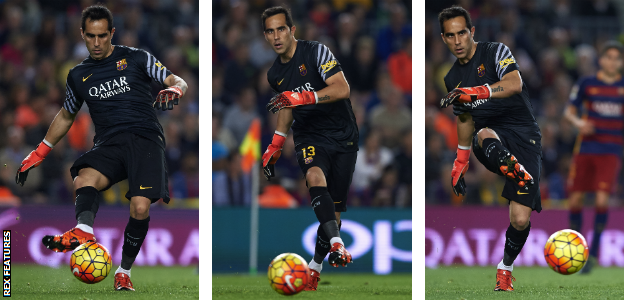
Goalkeepers were stopped from picking up backpasses in 1992 - now many of them are comfortable with the ball at their feet, like Manchester City's Claudio Bravo, although he had more success during his time with Barcelona
"That was one of the biggest changes to the game in its history and lots of people were against it when they were told it was being brought in.
"In actual fact it changed the identity of so many parts of the game in a positive way. Back then, people said goalkeepers would have to become like outfield players - well, that has happened and it is a good thing.
"It happened in the middle of my playing career and it was harder for the keepers who had been brought up being able to pick the ball up.
"They had to adapt, but for keepers now who have grown up with that rule, it is just part of the game.
"I didn't think it was a good idea at the time, but in retrospect it was a really good one."
Penalty goals? Stopping a 'Suarez' from happening again
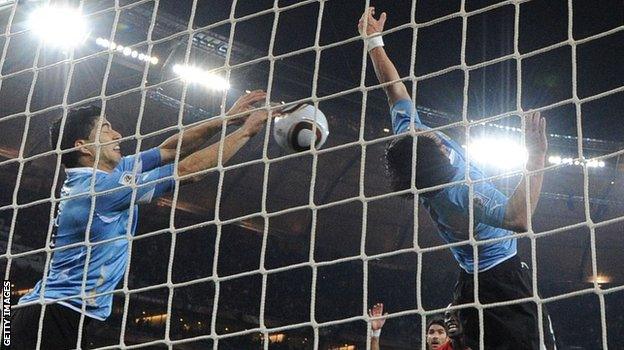
Suarez's 'save' against Ghana at the 2010 World Cup. Uruguay won the match
Ifab proposal: The referee can award a goal if a player stops a goal being scored by handling on or close to the goalline.
Nevin: "This idea is to try to stop people doing what Luis Suarez did during the 2010 World Cup, when his 'save' stopped what would have been a match-winning goal for Ghana against Uruguay in the quarter-finals., external
"Suarez was sent off, but Ghana missed the subsequent penalty and ended up losing the game in a shootout.
"I have no problem with a penalty goal being awarded if the handball is absolutely deliberate.
"By that, I don't mean if the player's hands are in a natural position but if they put their hands up to stop a goal like a goalkeeper would - or dive to do it in the most obvious scenario.
"If there is nothing else that could have happened to stop the ball going in the net for a goal, then I would agree with giving a goal rather than awarding a penalty.
"Again it is the wording which will be all-important thing in how easily the new law here would be interpreted.
"Look at the offside rule as an example of how you can overcomplicate things. How many of the caveats have made it murkier, rather than more clear?
"The initial wording of the offside law was simple and perfect but the subsequent caveats, like whether someone is interfering with play, make it confusing."
When there is no problem, and technology has the answer
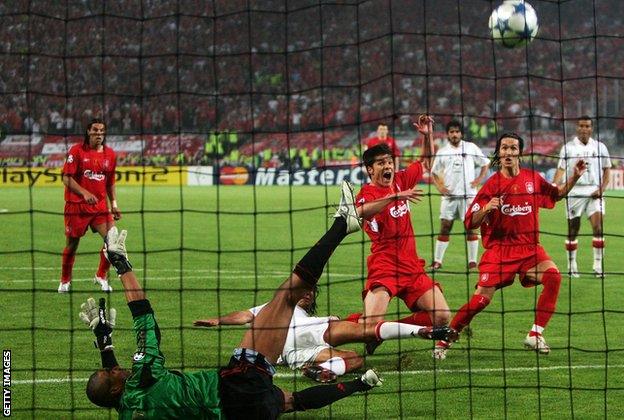
Under one of the suggested new rule changes, Xabi Alonso's goal in the 2005 Champions League final would not be allowed - as it was scored from a penalty rebound
Ifab proposal: To stop encroachment into the area, when a penalty kick is either scored or missed/saved, players can no longer follow up to score.
Nevin: "This is not a problem that needs solving if the referee and assistant referee do their jobs properly. Part of their responsibility is to make sure no-one encroaches.
"If there was video technology, you would be able to prove it was happening.
"So I would not worry about this rule. If it is a problem, then technology offers the solution here."
Taking a leaf out of rugby's rulebook
Ifab proposal: Referees can only blow for half-time or full-time when the ball goes out of play.
Nevin: "There is a bit of sense behind this suggestion. It already happens in rugby, which gives us an idea of what effect it would have on the end of matches where the result is in doubt.
"Again, I would trial it. You have to do that with all of these suggestions, and try them out in junior competition or at a low level. That way you see where the possible flaws are and see if you can iron them out.
"If you can't, then you shrug your shoulders and think again. But there is no harm in trying."
Pat Nevin was speaking to BBC Sport's Chris Bevan.
- Published2 March 2017
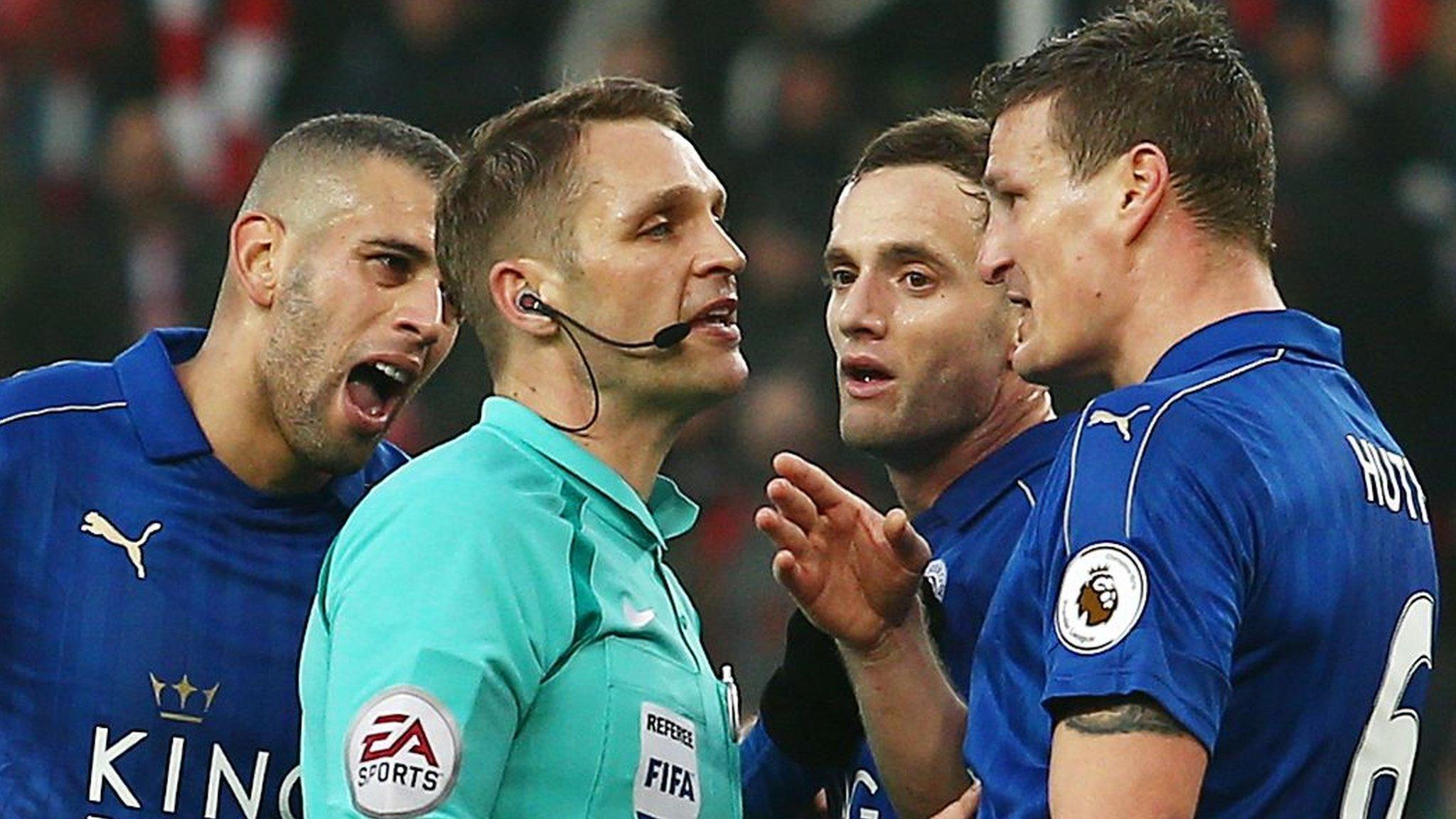
- Published11 May 2017
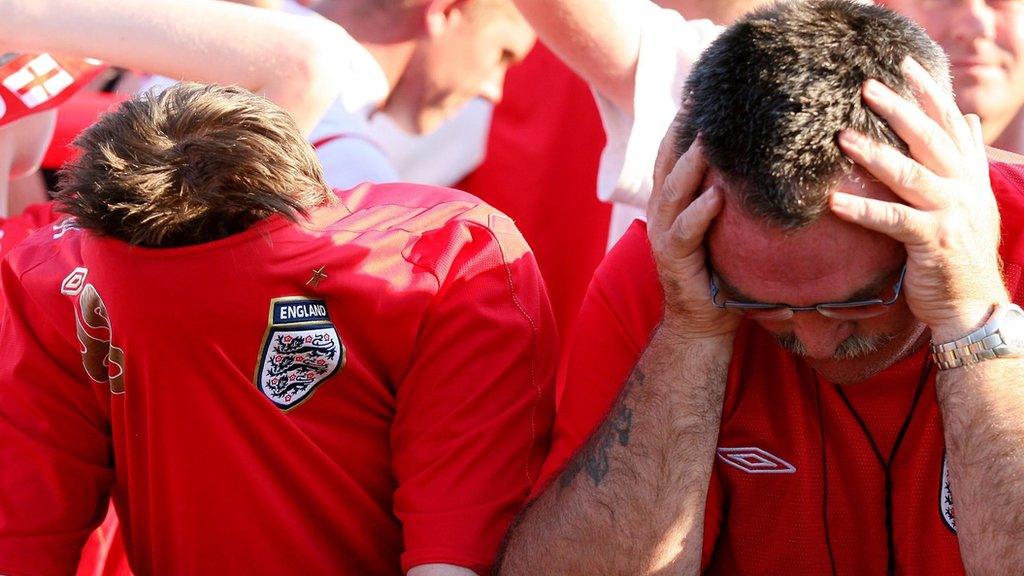
- Published1 February 2017
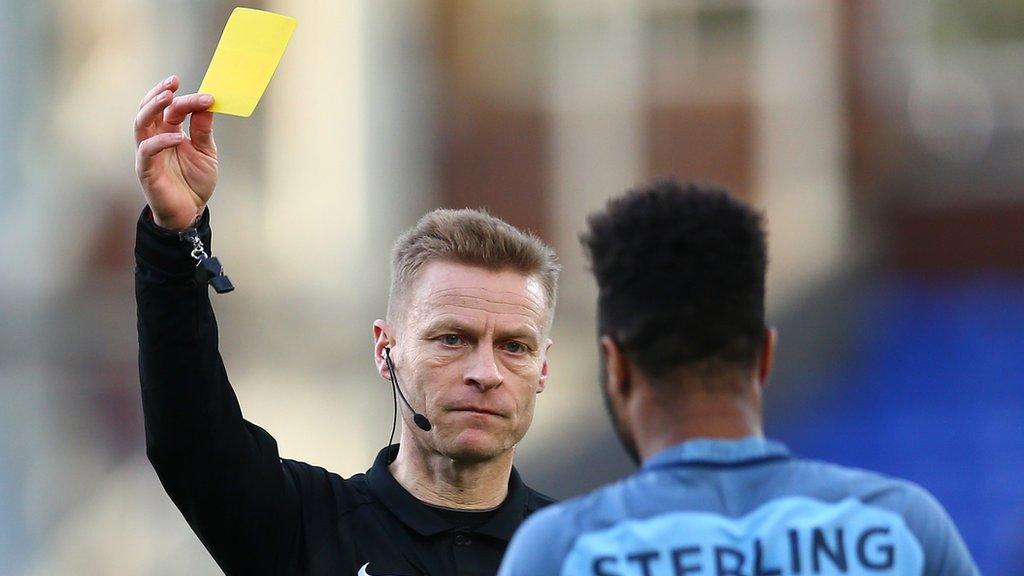
- Published5 March 2016
